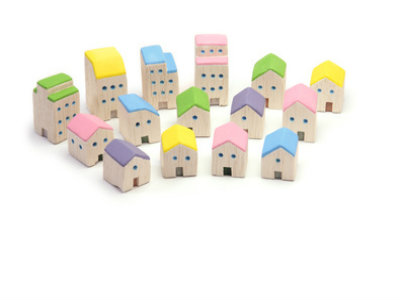
By Imogen Parry
Since the introduction of No Secrets and the Supporting People programme in the early 2000s, supported and sheltered housing staff have had both a mandate and a quality assessment framework requiring them to engage in adult safeguarding. But there has been a growing realisation that staff working in the non-specialist housing sector should also have adult safeguarding policies, procedures and training due to the increasing numbers of adults at risk living in general needs housing. The Social Care Institute for Excellence guide on adult safeguarding for housing staff recognises this need and was supported by my research on housing related serious case reviews (SCRs) which found 30% of publicly available SCRs were concerned with adults who lived in social housing, equally split between the two sectors – specialist sheltered or supported housing and general needs. The vulnerability factors of the subjects included: learning disabilities, mental or physical health issues, care leaver, substance misuse.
The dual and increasing need for improved engagement by all housing providers in safeguarding adults and for greater understanding by statutory partners of the key role housing can play led to the creation of a new Housing and Safeguarding Adults Alliance at the beginning of 2014. The alliance is comprised of six of the principal housing trade and professional bodies and some leading housing providers.
We were delighted that the statutory guidance for the Care Act 2014, which comes into effect from April 2015, will require all housing providers and housing support providers to ensure that all staff have clear operational policies and procedures. All housing staff must be: familiar with the six principles underpinning adult safeguarding (empowerment, prevention, proportionality, protection, partnership, accountability), trained in recognising the symptoms of abuse, and vigilant to and able to respond to adult safeguarding concerns. Agencies should identify a senior manager to take a lead role in organisational and inter-agency safeguarding arrangements.
The implications of these new duties on all housing providers are considerable in terms of culture change, resources and timescales. To assist this process, the alliance has produced a checklist for housing providers to self-assess their readiness for April 2015.
For all general needs housing providers to engage with adult safeguarding it means engaging with social workers. However, social workers’ awareness and understanding of the housing sector and the role of housing staff varies hugely. If social workers lack this knowledge then there are several ways they can address this: for example, by talking to housing staff about their roles and responsibilities, carrying out joint risk/capacity assessment visits, inviting them to meetings, and having joint training.
It is crucial for social workers to be aware of housing staff and their role and to be in regular contact with them because housing staff are in contact with many adults at risk often before they are referred to adult social care, so housing staff are well placed to work preventatively.
To support and enhance housing providers’ internal preparations for the implementation of the safeguarding aspects of the Care Act and statutory guidance, adult social care staff are strongly encouraged to ensure that:
- All housing providers are aware of their safeguarding obligations under the Care Act and statutory guidance.
- Housing staff are consulted on current reviews of multi-agency safeguarding policies and procedures in light of the Care Act 2014.
- Housing agencies’ policies and procedures are consistent with the local multi-agency approach, addressing omissions, inconsistencies and grey areas.
- Reviews of information-sharing protocols involve the housing sector.
- The role and contribution that housing staff can play in safeguarding is recognised.
- There are agreed processes for keeping referrers informed of progress on safeguarding referrals.
- Housing staff are invited to strategy meetings.
- There is a joint approach to working with service refusers and those who self-neglect.
- Guidance and training is given to housing support staff when asked to ‘make enquiries’ under section 42(2) of the Care Act and paragraphs 14.84 and 14.59 of the statutory guidance.
- Joint training on adult safeguarding and the Mental Capacity Act 2005 includes a realistic focus on the role of housing staff, that is, it is not geared only towards care home or domiciliary care workers.
- Local multi-agency events, meetings or conferences are arranged to enable housing providers and adult social care staff to identify common barriers to joint working and suggest solutions.
- Housing providers are engaged with or represented on the safeguarding adults board and other multi-agency safeguarding bodies.
Imogen Parry works as an independent safeguarding adults consultant, researcher and trainer for the housing sector and is co-chair of the Housing and Safeguarding Adults Alliance. She can be contacted at imogen.parry@btopenworld.com


 Bournemouth, Christchurch and Poole
Bournemouth, Christchurch and Poole  Hampshire County Council
Hampshire County Council  Lincolnshire County Council
Lincolnshire County Council  Norfolk County Council
Norfolk County Council  Northamptonshire Children’s Trust
Northamptonshire Children’s Trust  South Gloucestershire Council
South Gloucestershire Council  Wiltshire Council
Wiltshire Council  Wokingham Borough Council
Wokingham Borough Council  Children and young people with SEND are ‘valued and prioritised’ in Wiltshire, find inspectors
Children and young people with SEND are ‘valued and prioritised’ in Wiltshire, find inspectors  How specialist refugee teams benefit young people and social workers
How specialist refugee teams benefit young people and social workers  Podcast: returning to social work after becoming a first-time parent
Podcast: returning to social work after becoming a first-time parent  Podcast: would you work for an inadequate-rated service?
Podcast: would you work for an inadequate-rated service?  Family help: one local authority’s experience of the model
Family help: one local authority’s experience of the model  Workforce Insights – showcasing a selection of the sector’s top recruiters
Workforce Insights – showcasing a selection of the sector’s top recruiters 

 Facebook
Facebook X
X LinkedIn
LinkedIn Instagram
Instagram
Comments are closed.